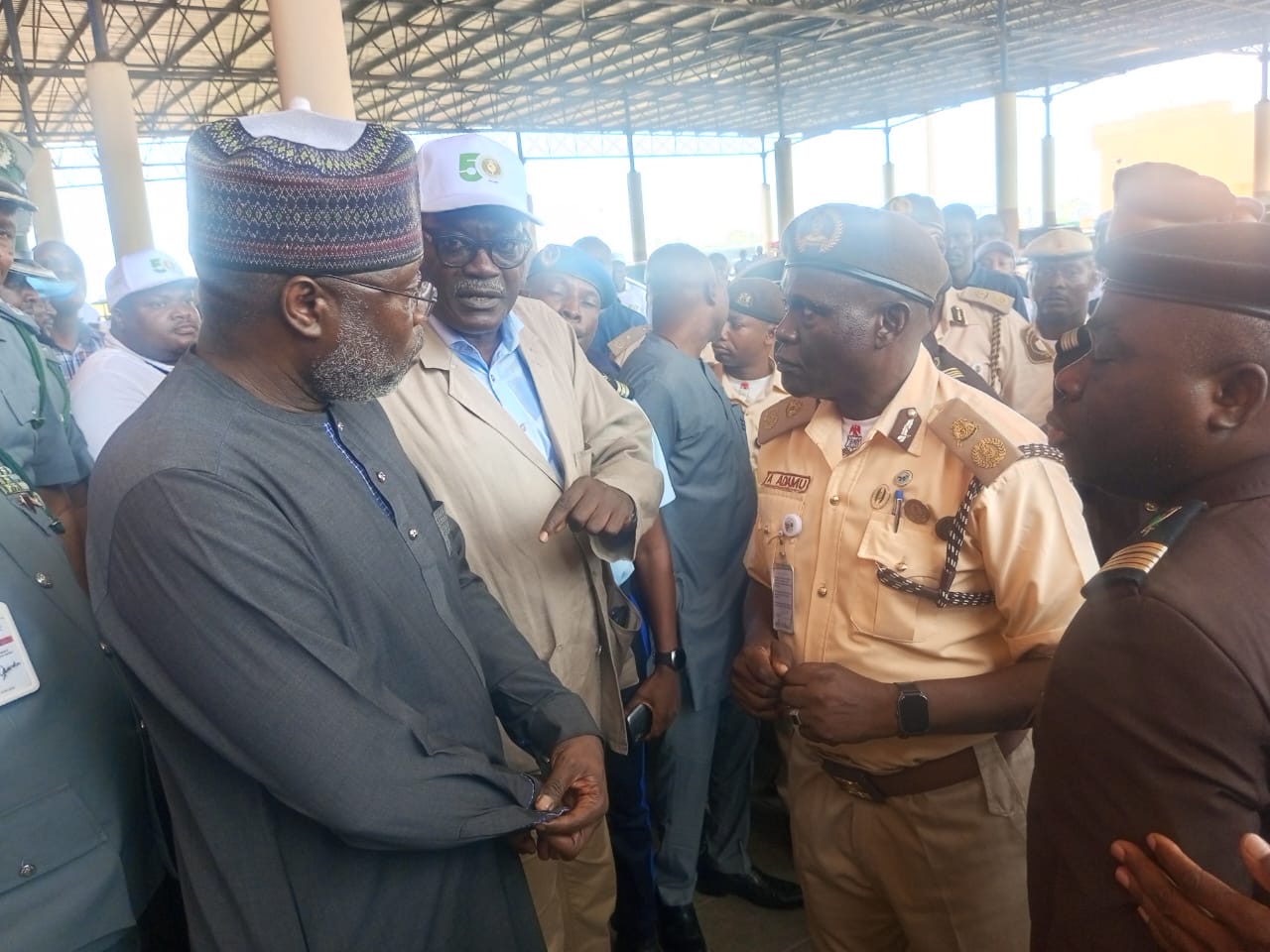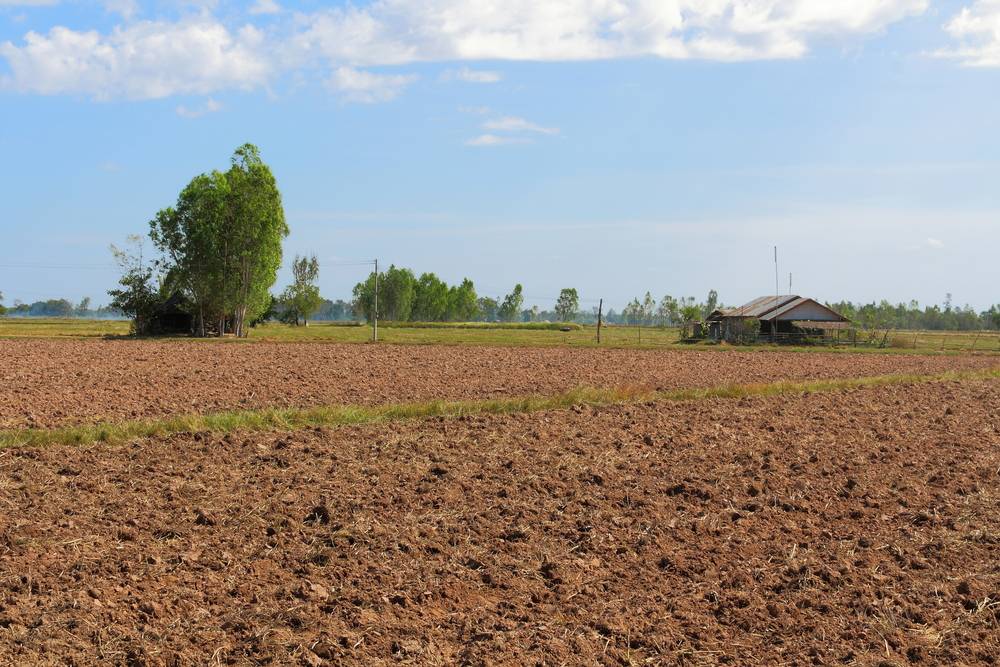The President of the Economic Community of West African States Commission, Dr. Omar Touray, on Wednesday, delivered a critique of underperforming border infrastructure during a high-level visit to the Nigeria-Benin Republic Border Post, calling for urgent reforms to safeguard the region’s free movement agenda.
“This is one of the busiest and most strategic border posts in West Africa,” Touray said, addressing Nigerian and Beninese officials.
“And yet, we are faced with expensive facilities; scanners, lighting systems, and bridges that are simply not working. That is unacceptable,” he lamented.
Touray, whose last visit to the border was over 16 years ago, said he was alarmed to find that core ECOWAS infrastructure was neglected despite heavy investment.
“We cannot justify millions spent on equipment that lies idle. Our citizens expect results—not excuses,” he said.
The ECOWAS leader emphasised that while the regional body is responsible for initiating infrastructure, the onus of maintenance lies with individual member states.
“If a lightbulb goes out, ECOWAS should not be called to replace it.
“Member states must step up and take ownership,” he said pointedly.
The commission’s president also criticised the proliferation of checkpoints within member countries, arguing that it contradicts the spirit of free movement enshrined in ECOWAS protocols.
“Why do we have multiple customs and immigration posts for the same corridor?”
“It frustrates travellers, delays trade, and creates opportunities for corruption,” he asked.
Calling for transparency, he urged officials to crack down on unofficial payments.
“We have received troubling reports of citizens being asked to pay without receipts.
“This damages trust. If any fee is legitimate, it must be receipted. Period!,” Touray noted.
The commission’s president further stressed that free movement does not mean a free-for-all.
“Our people must understand that they need valid identification to travel. Security and freedom must go hand in hand,” he said.
Despite the setbacks, Touray said he was encouraged by the joint commitment from Nigeria and Benin to improve cooperation.
“This border post has potential,” he said. “But potential alone is not enough. We must act—and act fast.”
He pledged that ECOWAS would deliver a full report with recommendations to improve operations, address infrastructure failures, and remove obstacles to seamless cross-border movement.
“If we cannot move people and goods freely, we cannot build a truly integrated region.
“And if our infrastructure fails, we fail our people. That is a failure we cannot afford,” the president.
The Nigerian Customs Controller of the Lagos-Seme Border, Ben Oramalugo, provided a stark assessment of the situation. “We have scanners installed, but they are not working.
“Since I reported here on February 12, they have remained non-functional. These scanners can detect things human eyes cannot.
“When you inspect cargo manually, you might miss drugs or dangerous goods hidden deep inside. We need your help to get these scanners working again,” Oramalugo explained.
Oramalugo listed a series of critical problems hampering operations. “There is no light in the pedestrian passage, and criminals take over the area at night,” he said.
“There is no roofing for those passing through, and we do not have water in the offices. Every morning, labourers fetch water in jerrycans just so we can function. This isn’t acceptable for such a significant facility,” the officer listed.
He added, “We do not have electricity at all in Seme. We depend entirely on Benin. And when their power goes out, we’re left in total darkness. This is Nigeria’s number one border, connecting the entire Francophone region, yet we are not connected to the national grid.”
The customs controller also raised concern about economic policy and the impact of double taxation.
“Goods coming from Benin that should be in transit are taxed there and then taxed again in Nigeria. This discourages trade. Importers are avoiding this corridor. We need both countries to follow internationally recognized transit rules,” the customer officer stated.
A major theme during the visit was the language barrier between officers. “I cannot even communicate with my Beninese counterpart.
“We need a policy across ECOWAS that makes learning both English and French compulsory from primary school through university. If you do not pass French at one level, you should not be allowed to move to the next. This is how we prepare future officers for cross-border cooperation,” Oramalugo said.
He added, “The scanners do not work, and we spend a lot of time checking goods manually. It is a security risk. The pedestrian crossing is dark at night, and people are afraid to use it. The roofs are broken. We are even forced to beg for water to clean our offices.”
Oramalugo also called on ECOWAS to reduce the number of checkpoints on the international corridor.
“From here to Badagry, I have ensured there are only three customs checkpoints. But there are still too many from other agencies. I appeal to you—let us enforce a maximum of three checkpoints total. This road tells the story of Nigeria. What people see here reflects on all of us,” the customs officer stated.
At the Nigerian side of the border, customs officials detailed the challenges they face, from failing infrastructure to outdated equipment.
“The roof is leaking, it has already damaged some of our computers,” a senior officer told Touray during a walkthrough of the inspection facility.
“We have reported to our headquarters, but nothing has been done. We need an emergency repair of this place,” he added.
Touray asked whether ECOWAS had been formally informed, the officer added, “It is the responsibility of our headquarters to report to ECOWAS, but we do highlight these problems regularly.”
Touray was also shown the pedestrian control and biometric system. However, officers pointed out a major gap in interoperability.
“Nigeria has a biometric system, but Benin does not,” an officer explained. “Once Nigeria does the biometric control, that’s all that’s needed. There is no further check on the Benin side.”
A Nigerian commercial driver with Chinsco Company, Joseph Dibang,
said extortion, harassment, and delays are common during cross-border trips. “From Nigeria to Ghana, it takes us 12 to 13 hours because of unnecessary stoppages.
“When we are returning, they disturb us less, but going, it’s a nightmare,” Dibang told Touray.
He described how border officials across Togo, Ghana, and Côte d’Ivoire demand unofficial payments.
When asked whether receipts were issued for these charges, Dibang responded bluntly, “No. Nothing. It’s all under the table.”
On the issue of passenger identification, he said transport companies try to enforce documentation requirements. “We ask for ECOWAS passports or NIN for Nigerians, and the Ghana card for Ghanaians,” he explained. “But some people still travel without valid documents. We have had to make arrangements with immigration officers and pay extra for such passengers.”
Touray raised concerns about that practice, saying, “Given the security challenges in the region, I think transporters should also insist on picking only passengers who can be identified. We all have a role in ensuring regional security.”
Adding to the frustrations, a Beninese driver explained how regional integration policies are often ignored. “We congratulate you, Mr. President, on ECOWAS’ efforts,” he said. “But the reality is, your decisions are not respected at the ground level.”
He highlighted how in Benin, some reforms have been made. “There is no more police fraud internally. But the ECOWAS electronic system, the mechanism for sealing goods and vehicles hasn’t started here. When our vehicles go to Côte d’Ivoire, they are fined heavily, even if everything is in order.”
“While ECOWAS says there should be free movement of people and goods, we see the opposite.”
Touray acknowledged the inconsistencies, reiterating ECOWAS’s commitment to both security and seamless trade. “Let me be very clear. Member states have every right to ensure the security of their borders. But extorting money from citizens is not acceptable and must stop. No ECOWAS government condones that.”
The Commission’s president called on customs agencies and national authorities to align more closely with ECOWAS protocols.
Immigration officers stationed along the Seme border have called for intensified public awareness campaigns on the rights and limitations of the ECOWAS free movement protocol, citing widespread misunderstanding among travelers and transporters.
The Permanent Representative of Nigeria to ECOWAS Ambassador Musa Nuhu, described the Seme border as critical to the ECOWAS free movement agenda. “This is the busiest border in West Africa, in terms of passage of goods, people, and services,” he stated. “And if free movement is working in West Africa, it is in this border that we will be able to find out.”
Nuhu noted that the challenges raised by local officials—including infrastructure decay, overlapping security checks, and operational bottlenecks—highlighted the gap between policy and implementation. “It’s good that they mentioned these issues for you to really understand practically what is happening along this very important border.”
Nuhu also revealed that the Federal Government had taken steps to independently assess and reform the corridor. “Not quite long ago, we carried out the same exercise along the border without even the officials here knowing, for us to really take note of what is going on.
“President Bola Tinubu has just approved the setting up of the Presidential Task Force to dismantle multiple checkpoints in the whole country. We are starting with the Seme-Badagry corridor. That committee has been set up under the authority of the Secretary to the Government of the Federation, and we will soon start working to address this issue,” he added.




